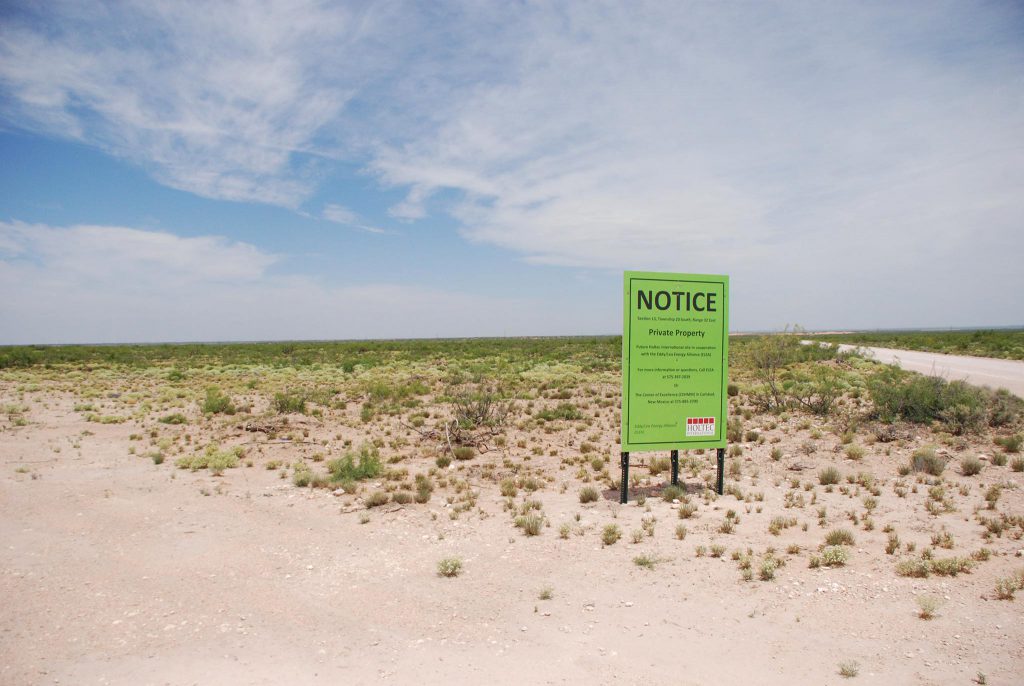“We’re seeing more and more that we’re trending towards an impasse on the movement of legacy contamination from Los Alamos…If that’s our only option, then that’s an option we’re going to explore and we’re going to need to figure out how to do that in a way that yields a better result for New Mexico. Because right now we’re at the bottom of the list and that’s unacceptable.” – New Mexico Environment Secretary James Kenney
BY: The Associated Press, SUSAN MONTOYA BRYAN | krqe.com

ALBUQUERQUE, N.M. (AP) — There’s growing frustration among New Mexico lawmakers and environmental regulators about the U.S. government’s slow pace in cleaning up contamination from decades of nuclear research and bomb-making at Los Alamos National Laboratory.
The officials shared their concerns during a legislative meeting Wednesday, saying New Mexico is taking a backseat to other states and that legal action might be their only leverage against the U.S. Energy Department as it sets priorities for the nation’s multibillion-dollar cleanup program for Cold War-era waste.
Since January, only five shipments of waste have been sent from Los Alamos to the government’s underground repository in southern New Mexico. Meanwhile, the Idaho National Laboratory is sending two to three shipments a week, or more than three times the goal environmental managers at Los Alamos have set for the coming year.
Cleanup work at Los Alamos — the birthplace of the atomic bomb — is governed by a consent decree with the state. New Mexico Environment Secretary James Kenney said his agency would not be opposed to renegotiating that agreement given the growing concerns of lawmakers, watchdog groups and environmentalists.
The slow pace has been the subject of ongoing discussions among state and federal officials.
“We’re seeing more and more that we’re trending towards an impasse on the movement of legacy contamination from Los Alamos,” Kenney said, acknowledging that New Mexico may have to follow the lead of other states that have sued over contamination.
“If that’s our only option, then that’s an option we’re going to explore and we’re going to need to figure out how to do that in a way that yields a better result for New Mexico,” he said. “Because right now we’re at the bottom of the list and that’s unacceptable.”
Steve Hoffman, deputy manager of the Energy Department’s Office of Environmental Management at Los Alamos, said the coronavirus outbreak has complicated operations. He said new policies and procedures had to be established to ensure workers’ safety.
There also was a slowdown at the Waste Isolation Pilot Plant near Carlsbad, where the waste is stashed in rooms carved out of an ancient salt formation about a half-mile underground. The idea is that the shifting salt will eventually entomb the radioactive tools, clothing, gloves and other debris that make up the waste.
Aside from developing a mobile loading system, Hoffman said a new indoor system will soon be tested to ensure work can continue regardless of weather conditions. He pointed to a shipment that had been scheduled this week and was cancelled due to damaging winds that swept across the state.
“We’re with you. We want to increase the pace,” he told lawmakers.
Environmental managers at the lab have set 2027 as the goal for completing cleanup of the Cold War-era waste.
Unacceptable is how state Rep. Christine Chandler described the goal. The Los Alamos Democrat was visibly frustrated, shaking her head and scoffing at the suggestion that simply making demands of the federal government would entice it to develop a more robust cleanup plan.
“We say we want a seat at the table, and all that’s great. What’s the motivator to get us a seat at the table?” Chandler asked.
Sen. Jeff Steinborn, a Las Cruces Democrat, said the state should negotiate an agreement that sets hard deadlines and includes penalties for missed milestones. He also voiced concerns about the proposed federal budget request for cleanup work at Los Alamos, noting that more money is being funneled toward the production of plutonium cores used for the nuclear arsenal.
“We have billions and billions and billions to expand the mission but yet we are continuing to shortchange the cleanup and I just think those priorities are kind of messed up,” he said.
The lab submitted its annual cleanup plan in August, but state officials confirmed Wednesday that they countered the proposal after raising significant concerns. State officials also noted that the environment department has collected $275,000 in penalties over the last 18 months for not complying with cleanup orders.
